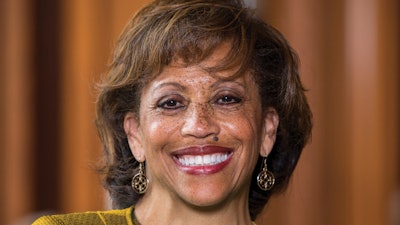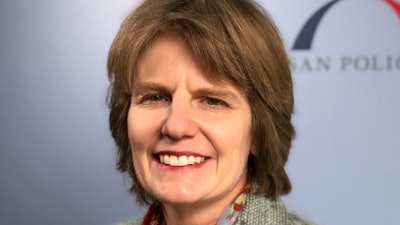We are asking today’s college students to go a long way to become the leaders the world needs. They come to college after years of pandemic-related interruptions to their lives and education. After they leave our campuses, they have to navigate and carve their way in a world that is increasingly polarized.
 Dr. Lori S. White
Dr. Lori S. White
Acknowledging the deep divide regarding perspectives on freedom of expression and diversity, equity, and inclusion (DEI) efforts across higher education, and the feelings of those who believe particular speech harms their personhood, we wholeheartedly reject the contention that these commitments must operate at cross-purposes. The values of freedom of expression, diversity, and inclusion are inherently connected to and dependent on one another. And they are necessary as we work to prepare and inspire students to be active participants in our democracy.
Freedom of expression is a means for inclusion, and inclusion is the enabling force for discovering truth and knowledge. A good college education prepares students to be independent thinkers, capable of stress-testing ideas and coming to reasoned conclusions. College campuses, particularly residential ones, represent rare places where people live, learn, work, and develop community together despite divergent perspectives.
As colleges and universities continue their important work to help more students — particularly students of color and first-generation students — gain access to higher education and belong and thrive on campus, they must strive to ensure a respectful, inclusive learning environment for all, recognizing that for many students, regardless of background, college may be the first time they have interacted in meaningful ways with difference. At the same time, colleges and universities must stand firm in their convictions to protect free thought and expression — even if it leads to heated dialogue, disagreement, and discomfort — while underscoring the values that create community trust, such as respect for the dignity of others.
 Dr. Jacqueline Pfeffer Merrill
Dr. Jacqueline Pfeffer Merrill
America’s higher education institutions simply can’t afford to allow our campus communities to mirror the partisan divide we see in almost every aspect of our social and political lives. We must foster opportunities to engage in respectful and civil debate, appreciate the nuance of an argument, critique conventional wisdom, and challenge authority. We must step up to demonstrate that higher education, because of the rich diversity of backgrounds, experiences, ideas, and perspectives on our campuses, is one of the best — and perhaps one of the only — places where this kind of engagement can occur. We must set an example for the students we serve.




















